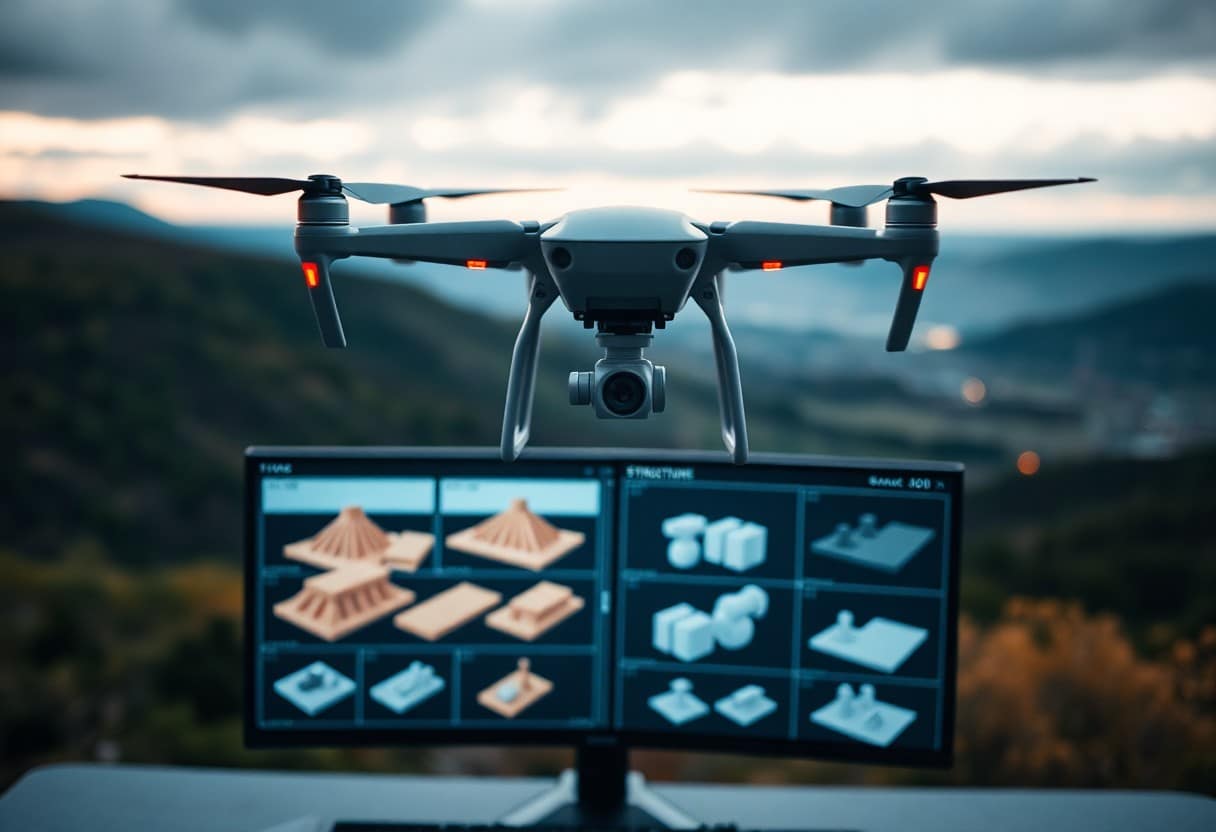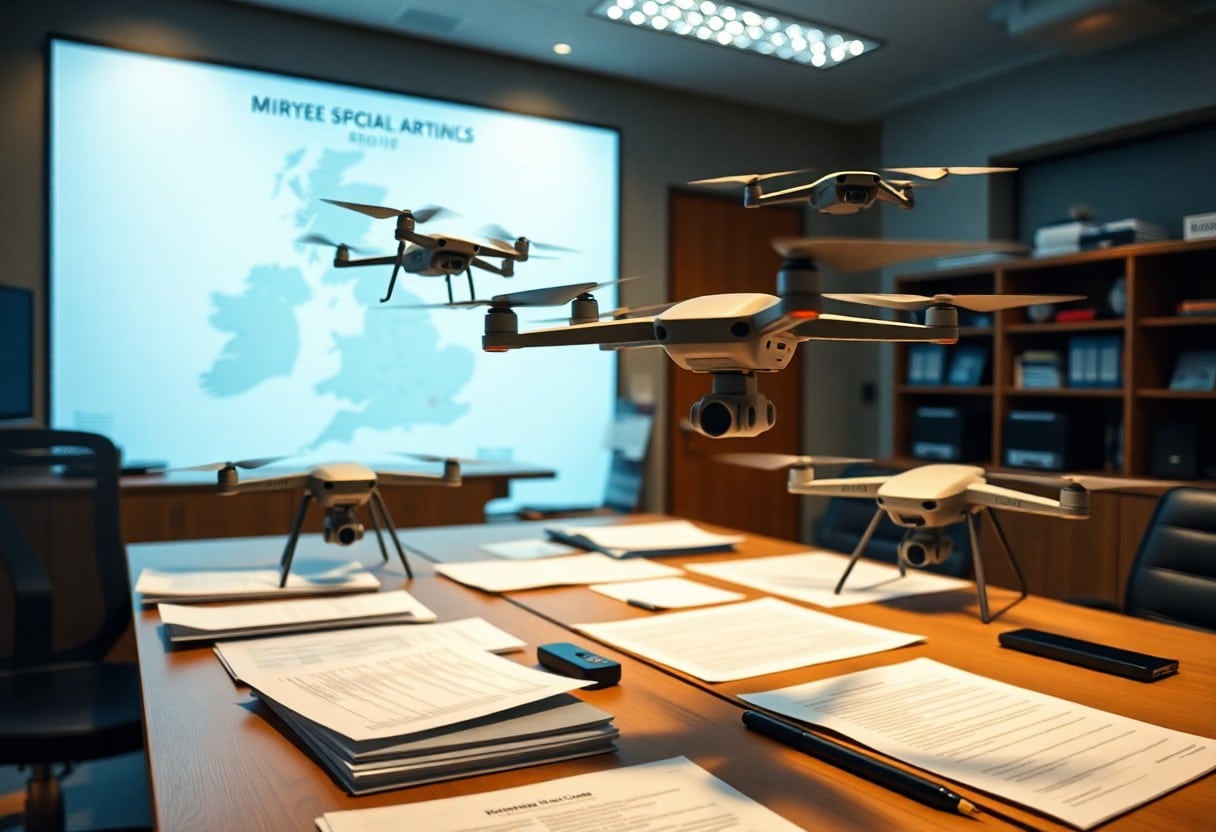What are the pilot certification requirements for commercial drones?
When you're considering commercial drone operations, it's good to know thatNecessary Pilot License RequirementsIt is of paramount importance. It is not only for the protection ofpersonal safetyIt also ensures that you comply with applicable laws and regulations. Depending on the country or region, you may be required to obtain specific licenses. In this article, we'll take an in-depth look atLicense Requirements for Commercial Drone OperationThis will help you to enter this fast growing industry smoothly.
Key Points:
- Pilot Certification: A valid pilot certificate is required to operate a commercial drone.
- FAA Requirements: According to the requirements of the Federal Aviation Administration (FAA), drone operators must pass the relevant examinations.
- Age Limit: Drone operators must be at least 14 years old to apply for a commercial certificate.
- Health Check: Operators are required to have a certified physical fitness level.
- Total Flight Time: Requires a certain amount of accumulated drone flying experience or related flying experience.
- Renewal requirements: Commercial drone operator licenses need to be renewed and updated periodically.
- Specific Compliance: Follow state and local drone use regulations and policies.
Overview of Commercial Drone Usage
In today's society, the use of commercial drones is becoming more and more common, covering a wide range of industries such as agriculture, construction, logistics and video photography. These drones not only improve work efficiency, but also significantly reduce operating costs. With the advancement of science and technology and the improvement of regulations, the potential of commercial drone applications continues to expand, you should pay more attention to this rapidly developing field.
Definition of Commercial Drone Operations
Commercial drone operations refer to the use of drones to carry out commercial activities, which include but are not limited to image taking, terrain surveys, crop monitoring, etc. You should follow the relevant regulations to ensure safety and legal compliance. When conducting such operations, you need to follow the relevant regulations to ensure safety and legal compliance.
The Growth and Importance of the Drone Industry
The drone industry has shown an amazing performance in the last few yearsGrowth PotentialThe market is becoming an integral part of the economy. As technology advances and demand increases, this market may present new opportunities for your career.
According to the latest market research, the drone industry is growing at an astonishing annual rate and is expected to continue climbing in the coming years. The droneWide range of applicationsThis includes monitoring environmental change, disaster relief, and logistics. This not only enables you to increase productivity in a variety of industries, but also creates new job opportunities. As commercial drone technology matures further, the safety and operational efficiency of its operations are becoming increasingly important.The importance of this should not be overlookedThe
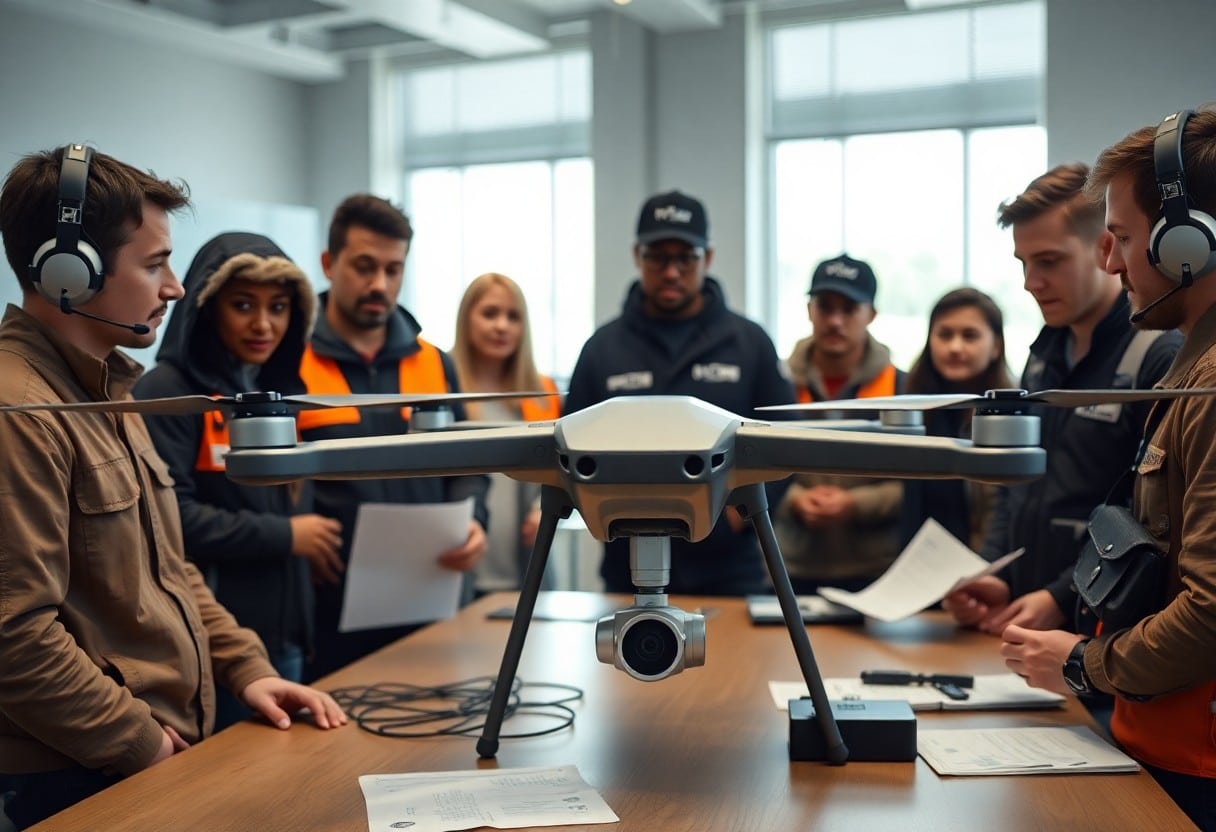
Federal Aviation Administration (FAA)
In the U.S., commercial use of drones is subject toAir Navigation Approvals - 7 Key Steps to Compliance in the UKThe Federal Aviation Administration (FAA) has established specific regulations to ensure the safety and minimize the risks associated with drone operations. The Federal Aviation Administration (FAA) has established specific regulations to ensure safe and risk-reducing drone operations, and these regulations apply to all commercial drone operators, including those who wish to earn an income.
Overview of Part 107 certificates
According to the FAA's Part 107 regulations, you must obtain the appropriate drone pilot certificate to legally engage in commercial drone operations. This includes an understanding of the basics of aviation, safety requirements, and drone usage regulations.
Eligibility Criteria and Application Process
To obtain a Part 107 certificate, you will need to meet certain eligibility criteria, including being at least 16 years of age and having English language skills. The application process generally involves filling out an application, paying a fee, and passing an exam.
During the application process, you will need to ensure that yourGood health statusand is prepared to accept the FAA's request forBackground Survey. In addition, it is recommended that you have a good understanding of flight operations and attend aRelated Training Coursesto improve your knowledge and skills.
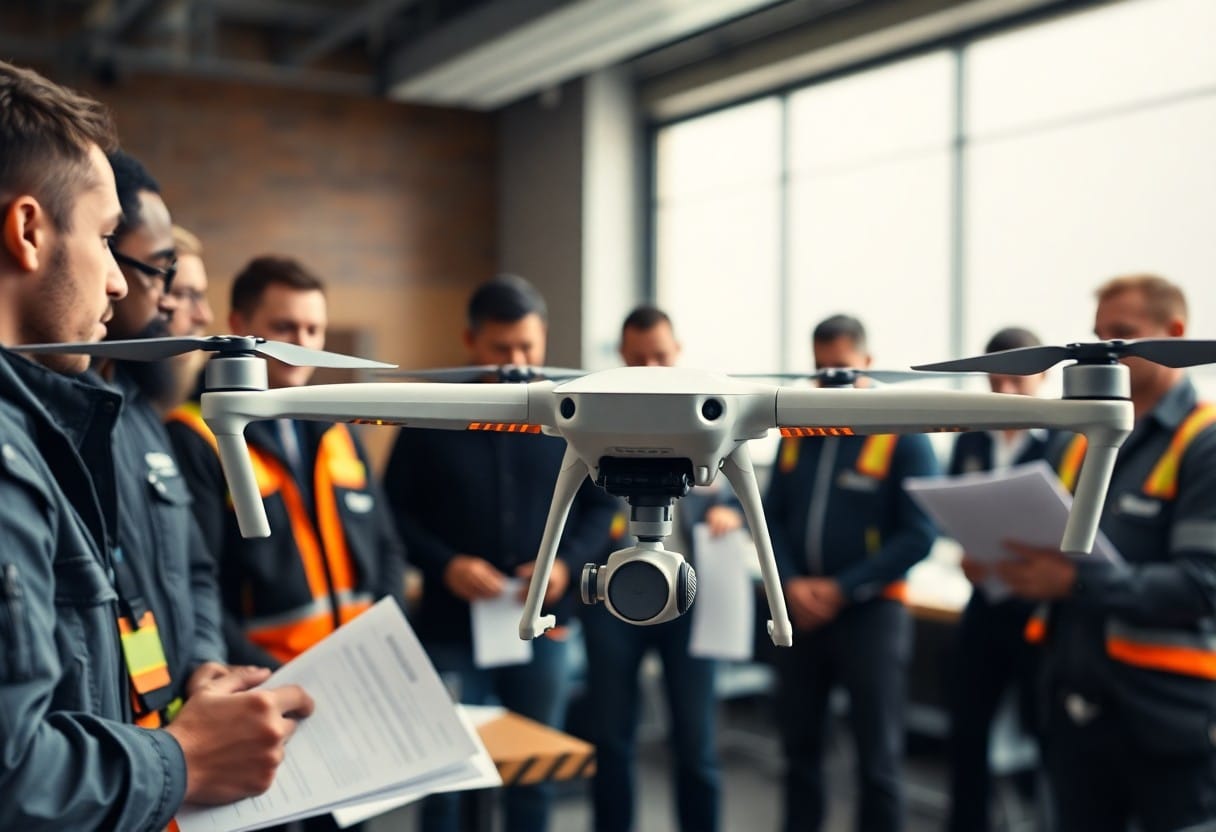
Required Knowledge and Skills
Becoming a commercial drone operator requires a range of knowledge and skills. According to10 Basic Steps to Apply for a Drone Permit in the UKYou must have a good knowledge of air navigation as well as practical flying proficiency in order to operate the drone safely and effectively.
Aviation Knowledge
When learning to operate a commercial drone, you need to understand aviation knowledge, including aviation weather, airspace classification, and aircraft performance. These are the fundamentals of safe drone flight, helping you to develop a sound flight plan and avoid potential hazards.
Actual Flight Proficiency
In addition to aeronautical knowledge, practical flying proficiency is crucial to obtaining a commercial drone license. You'll need to perform a number of practical maneuvers to master your drone piloting skills and be able to respond correctly in a variety of situations.
increasingActual Flight ProficiencyDuring the course of your flight, you should emphasize training and practice flying in different environments. For example, simulating different weather conditions or practicing in complex airspace. This will not only help improve your maneuvering skills, but will also enable you to better respond to unexpected situations and ensure the drone's safety.Safety and Performance. Only when you are well versed in these skills can you become a competent drone operator and avoid unnecessary risks.
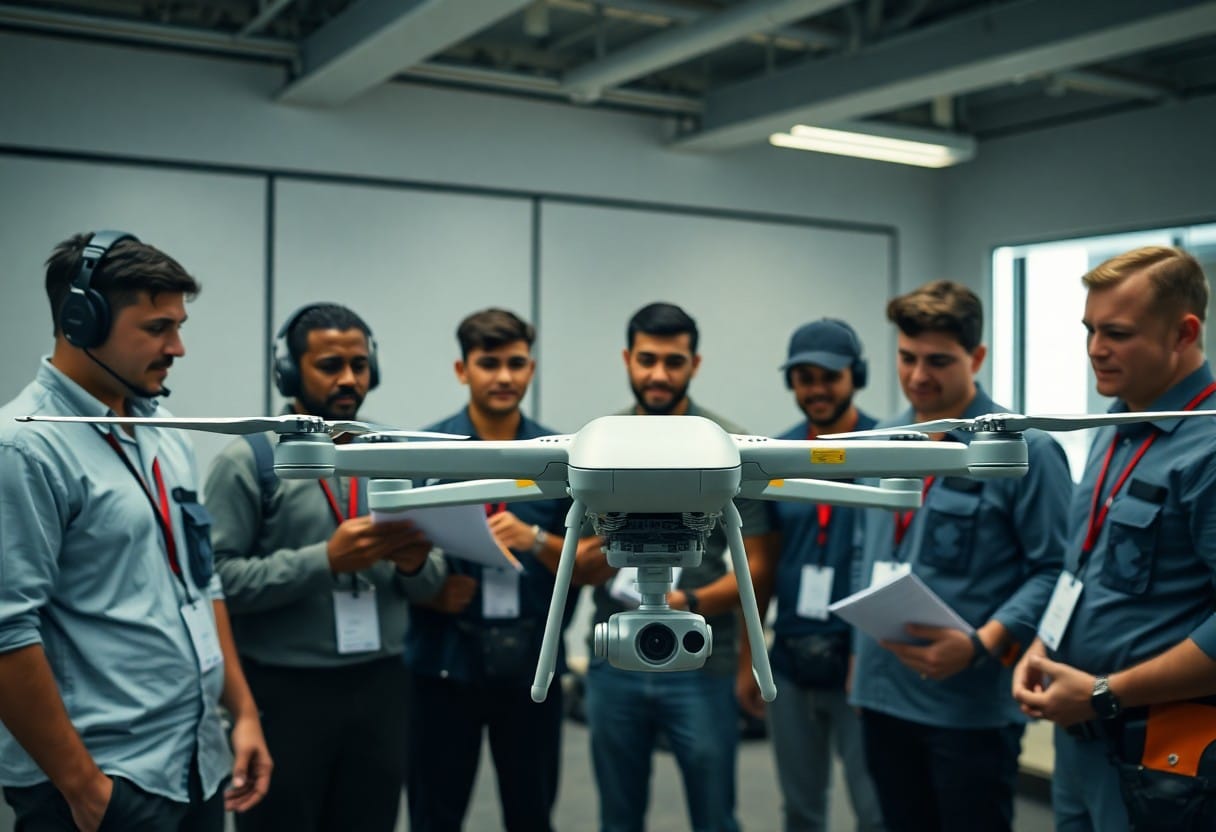
Additional Certifications and Qualifications
In commercial drone operations, in addition to the basic pilot certification, you may be required to obtain aAdditional Certifications and QualificationsYou may be required to obtain a certificate or complete advanced training in order to meet different business needs or areas of operation. For example, certain specific tasks, such as night flying, altitude flying or close manned operations, may require you to obtain the appropriate qualification certificate or complete advanced training.
Remote Control Pilot Certificate
If you intend to use the drone commercially, you must get aRemote Control Pilot CertificateThis certificate demonstrates that you have the knowledge and skills to conduct safe operations. This certificate demonstrates that you have the knowledge and skills to conduct safe operations, including an understanding of aviation regulations, meteorology, and drone systems.
Immunity and Disclaimer
In some cases, you can apply forExemption or exemption from liabilityto conduct flight operations that exceed standard specifications, such as night flights or flying over crowds. If your operation meets certain conditions, you may be approved by the FAA, which will give you greater flexibility in your business activities.
When applying for a waiver, please be sure to describe in detail your plan of operation andRisk Control MeasuresIn order to increase the likelihood of approval, it is important to understand the criteria and requirements for exemptions. Understanding the criteria and requirements for exemptions is important to ensure that you are operating within the legal framework. Consider seeking the assistance of a professional advisor to better prepare your application and increase your chances of success.
State and local law regulations
It is important to understand and comply with state and local regulations when conducting commercial drone operations. These regulations may vary from region to region, so you'll need to do your research to ensure compliance. If you're looking to get certified as a pilot, you can check outNavigating Drone Regulations - 8 Steps to a Successful License ApplicationThe
Understanding local laws
Local laws sometimes impose specific restrictions on drone operation, such as flight altitude, flight duration and no-fly zones, which are important to know before you proceed.
Compliance with state-specific requirements
Each state may have its own unique requirements for commercial drone operations, which may include registration, insurance, and even specific flight training. Understanding these requirements is essential for you to avoid legal problems.
For example, some states may require you to obtain certain permits and licenses before engaging in commercial drone activities, and other states may have aStricter regulations. Always check the relevant laws in your state and make sure yourFlight activities are fully compatibleThese requirements, which are not only legal obligations, are the basis for your safety and the success of your drone operation.
Continuous training and regular testing
in commercial drone operations.Continuous training and regular testingIt's a key element in ensuring safe and efficient flights. As technology evolves rapidly, you need to constantly update your skills to meet the latest industry standards and legal requirements.
Continuing Education Requirements
Many countries and organizations require drone operators to participate in theContinuing Education ProgramsWe also offer a variety of courses to ensure that you receive the most up-to-date technology and knowledge. These courses cover not only operational techniques, but also legal, policy and security issues to help you better cope with the ever-changing environment.
The importance of staying up to date
stay up to dateIt's important for drone operators because flight regulations, technological innovations and industry best practices can change quickly. This ensures that not only are you not breaking the law, but that you remain efficient and safe on the job.
In the drone industry.stay up to dateIt's not just about your career, it's also about public safety. By attending regular training and gaining new knowledge, you'll be able to keep up to date with the latest equipment and operational techniques to avoid the risks associated with outdated technology. In addition, with the introduction of new regulations, it is important that you are aware of these changes to ensure that your operations do not contravene them, not only to protect your professional image, but also to safeguard the integrity and viability of the industry as a whole.
Pilot Certificate Requirements for Commercial Drone Use
Before you can operate a commercial drone, you need to obtain the FAA's Part 107 certificate. This requires you to pass an exam that covers drone operations, air law and meteorological knowledge. In addition, you must be at least 16 years old and meet health standards.
Frequently Asked Questions
Q: What kind of license does a commercial drone operator need?
A: Commercial drone operators are required to hold an FAA Part 107 license, which is a drone pilot's license designed for commercial use.
Q: What are the age requirements for obtaining a commercial drone license?
A: Applicants must be at least 16 years old to take the examination and obtain a commercial drone license.
Q: What kind of examination do I need to pass to apply for a commercial drone license?
A: Applicants are required to pass a 120-minute examination covering knowledge of drone operation, meteorology, aviation regulations, flight performance and other related topics.
Q: What are the health requirements for an applicant to obtain a license?
A: Applicants are required to pass an eye test, have good vision (or meet the requirements if wearing eyeglasses or contact lenses), and be mentally and physically fit to fly.
Q: Do I need to renew my Commercial Drone License periodically after obtaining it?
A: Yes, licenses are subject to renewal every two years and require the completion of a small drone knowledge test.
Q: What is the process of applying for a commercial drone license?
A: The application process includes submitting an application, paying a fee, taking an FAA-approved exam, and passing a health screening.
Q: What types of drones can be used for commercial operations?
A: Commercial licensed operators may operate a drone weighing less than 55 pounds commercially and must follow FAA regulations.
